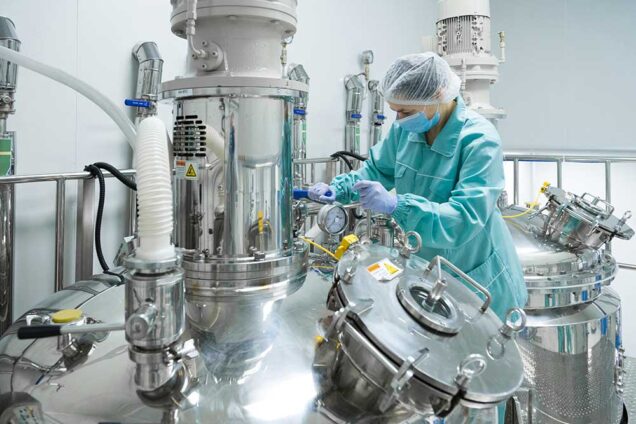Regulatory pressure on the pharmaceutical industry is higher than ever. In 2022, the FDA sent 62 warning letters and 23 import alerts to drug companies. The number of Form 483 observations also more than doubled from 2021, reaching 466. These figures highlight the increasing focus on quality and compliance standards companies must meet to stay in business.
One of the key tools for maintaining compliance and ensuring consistent product quality is the Annual Product Quality Review (APQR). APQRs are essential for pharmaceutical companies to meet regulatory requirements, monitor product performance, and identify areas for improvement. However, traditional methods of APQR preparation often require pulling data from multiple disconnected sources, resulting in inefficiencies and delays.
For companies managing large datasets across manufacturing, quality, and compliance systems, the process can quickly become overwhelming. Mareana simplifies this complexity by enabling a seamless, single-click APQR generation. This innovative approach not only saves time but also ensures accuracy and compliance.
What APQR Is and Why It’s Essential
The Annual Product Quality Review is a regulatory requirement for pharmaceutical and biopharmaceutical companies. It involves a comprehensive yearly analysis of a product’s quality to ensure consistency, detect trends, and identify areas for improvement.
APQR serves three main purposes: to confirm that production processes remain consistent and meet established quality standards, to maintain product quality across all batches produced during the year, and to identify and address any trends or deviations to improve processes proactively.
APQR is essential for the following reasons:
- Regulatory Compliance: Agencies like the U.S. Food and Drug Administration (FDA) and the European Medicines Agency (EMA) require APQR as part of Good Manufacturing Practices (GMP). It ensures that companies consistently meet high-quality standards and deliver safe, effective products..
- Process Improvement: By analyzing trends and anomalies in manufacturing, quality control, and product performance, APQR allows companies to address potential issues proactively, optimizing their processes before problems arise.
- Risk Management: Through a systematic review of product quality, APQR reduces risks related to variability, defects, or failures, ultimately safeguarding patient safety and ensuring product reliability.
By meeting these objectives, APQR not only satisfies regulatory requirements but also drives continuous improvement in quality and operational efficiency.
How Companies Typically Handle APQR
While APQR is essential for ensuring quality and compliance, traditional methods often make it a time-consuming and complex process.
- Data Collection
Companies must gather large amounts of data from various sources, including production records, quality control logs, deviations, complaints, and stability studies. Often, this data is scattered across multiple systems or stored in paper-based formats, requiring extensive manual effort to consolidate. - Data Analysis
Once the data is consolidated, quality teams analyze it for trends, deviations, and opportunities for improvement. Without standardized or easily accessible data, this step becomes time-consuming and labor-intensive, delaying decision-making. - Documentation and Review
The findings are compiled into an APQR report, which must be detailed, accurate, and audit-ready. This process often requires input from multiple teams, adding complexity and increasing the time needed to finalize reports.
These traditional methods present several challenges, including data silos, manual entry errors, inconsistent reporting, and increased effort during audits. Such inefficiencies not only slow down the process but also create additional risks.
To streamline the process, companies need tools that centralize data, automate workflows, and provide real-time insights, enabling them to manage APQR more effectively and focus on proactive quality management.
How Mareana Simplifies APQR
Mareana redefines APQR preparation by automating and streamlining the process. Its advanced features address the challenges of traditional methods, making the workflow more efficient and reliable.
- Automated Data Integration Mareana consolidates data from multiple systems, such as batch records, quality control results, and deviation logs. This automation reduces manual work and ensures all data is accurate and up-to-date.
- Batch Genealogy and Traceability The batch genealogy feature makes tracing materials, equipment, and process steps easier. This enables teams to quickly identify the root cause of issues and assess the broader impact of deviations.
- Trend Analysis and Insights Built-in analytics tools identify trends and anomalies across batches, helping teams resolve recurring issues, prioritize improvements, and make faster, data-driven decisions.
- Standardized Reporting and Audit Readiness
Mareana generates consistent, audit-ready APQR reports that meet regulatory standards. These reports save time during audits and ensure confidence in compliance. - Compliance and Data Integrity
With built-in compliance features like CFR Part 11 support, Mareana ensures that all data is secure, accurate, and trustworthy for both internal and external audits. - Continuous Process Improvement
Mareana enables companies to move beyond the traditional “once-a-year” approach. By continuously monitoring and reporting quality data, teams can adopt a proactive stance on process improvement and risk management.
Why Proactive Compliance and Continuous Improvement Matter
Regulators increasingly expect pharmaceutical companies to show not only compliance but also a commitment to continuous quality improvement. Mareana helps pharmaceutical companies:
- Spot recurring issues early and address them before they escalate.
- Simplify audit preparation with accurate, ready-to-use reports.
- Scale APQR processes to meet the demands of both small and large product portfolios.
By adopting a proactive approach, companies can ensure compliance, improve operational efficiency, and deliver better-quality products.
Simplify Your APQR Process with Mareana
Preparing APQRs no longer has to be a manual, time-consuming process. With Mareana, pharmaceutical companies can streamline quality reviews, reduce errors, and meet compliance standards with minimal effort—all in a single click.
If you’re ready to simplify your APQR process and focus on delivering high-quality pharmaceutical products, contact us today to learn more about Mareana.




 Learn more
Learn more


